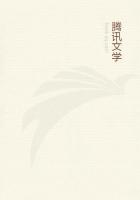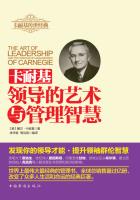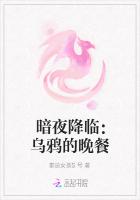The family may fairly be considered, one would think, an ultimate human institution. Every one would admit that it has been the main cell and central unit of almost all societies hitherto, except, indeed, such societies as that of Lacedaemon, which went in for "efficiency," and has, therefore, perished, and left not a trace behind. Christianity, even enormous as was its revolution, did not alter this ancient and savage sanctity; it merely reversed it.
It did not deny the trinity of father, mother, and child.
It merely read it backwards, ****** it run child, mother, father.
This it called, not the family, but the Holy Family, for many things are made holy by being turned upside down.
But some sages of our own decadence have made a serious attack on the family. They have impugned it, as I think wrongly;and its defenders have defended it, and defended it wrongly.
The common defence of the family is that, amid the stress and fickleness of life, it is peaceful, pleasant, and at one.
But there is another defence of the family which is possible, and to me evident; this defence is that the family is not peaceful and not pleasant and not at one.
It is not fashionable to say much nowadays of the advantages of the small community. We are told that we must go in for large empires and large ideas. There is one advantage, however, in the small state, the city, or the village, which only the wilfully blind can overlook.
The man who lives in a small community lives in a much larger world.
He knows much more of the fierce varieties and uncompromising divergences of men. The reason is obvious. In a large community we can choose our companions. In a small community our companions are chosen for us.
Thus in all extensive and highly civilized societies groups come into existence founded upon what is called sympathy, and shut out the real world more sharply than the gates of a monastery.
There is nothing really narrow about the clan; the thing which is really narrow is the clique. The men of the clan live together because they all wear the same tartan or are all descended from the same sacred cow; but in their souls, by the divine luck of things, there will always be more colours than in any tartan.
But the men of the clique live together because they have the same kind of soul, and their narrowness is a narrowness of spiritual coherence and contentment, like that which exists in hell.
A big society exists in order to form cliques. A big society is a society for the promotion of narrowness. It is a machinery for the purpose of guarding the solitary and sensitive individual from all experience of the bitter and bracing human compromises.
It is, in the most literal sense of the words, a society for the prevention of Christian knowledge.
We can see this change, for instance, in the modern transformation of the thing called a club. When London was smaller, and the parts of London more self-contained and parochial, the club was what it still is in villages, the opposite of what it is now in great cities.
Then the club was valued as a place where a man could be sociable.
Now the club is valued as a place where a man can be unsociable.
The more the enlargement and elaboration of our civilization goes on the more the club ceases to be a place where a man can have a noisy argument, and becomes more and more a place where a man can have what is somewhat fantastically called a quiet chop.
Its aim is to make a man comfortable, and to make a man comfortable is to make him the opposite of sociable. Sociability, like all good things, is full of discomforts, dangers, and renunciations.
The club tends to produce the most degraded of all combinations--the luxurious anchorite, the man who combines the self-indulgence of Lucullus with the insane loneliness of St. Simeon Stylites.
If we were to-morrow morning snowed up in the street in which we live, we should step suddenly into a much larger and much wilder world than we have ever known. And it is the whole effort of the typically modern person to escape from the street in which he lives.
First he invents modern hygiene and goes to Margate.
Then he invents modern culture and goes to Florence.
Then he invents modern imperialism and goes to Timbuctoo. He goes to the fantastic borders of the earth. He pretends to shoot tigers.
He almost rides on a camel. And in all this he is still essentially fleeing from the street in which he was born; and of this flight he is always ready with his own explanation. He says he is fleeing from his street because it is dull; he is lying. He is really fleeing from his street because it is a great deal too exciting.
It is exciting because it is exacting; it is exacting because it is alive.
He can visit Venice because to him the Venetians are only Venetians;the people in his own street are men. He can stare at the Chinese because for him the Chinese are a passive thing to be stared at;if he stares at the old lady in the next garden, she becomes active.
He is forced to flee, in short, from the too stimulating society of his equals--of free men, perverse, personal, deliberately different from himself. The street in Brixton is too glowing and overpowering.
He has to soothe and quiet himself among tigers and vultures, camels and crocodiles. These creatures are indeed very different from himself. But they do not put their shape or colour or custom into a decisive intellectual competition with his own.
They do not seek to destroy his principles and assert their own;the stranger monsters of the suburban street do seek to do this.
The camel does not contort his features into a fine sneer because Mr. Robinson has not got a hump; the cultured gentleman at No. 5 does exhibit a sneer because Robinson has not got a dado.
The vulture will not roar with laughter because a man does not fly;but the major at No. 9 will roar with laughter because a man does not smoke. The complaint we commonly have to make of our neighbours is that they will not, as we express it, mind their own business.
We do not really mean that they will not mind their own business.

